Friday Phone Call # 9
Morgan Jenness
Grab a cup of coffee or tea and sit down with this call. It is a remarkable conversation with Morgan and I could have stayed on the line for hours. We talk about the origins of the Literary Office, we talk about the importance of institutional dramaturgy, we talk about Joe Papp-two great stories in here. Parental Advisory: we drop some f bombs, but they are French f bombs and spelled differently than the American ones. She also tells a story about David Merrick that leads to the notion of the script as a blueprint, not a play. This is Morgan Jenness: free, adult, and uncensored. (That was the tag line for the Federal Theatre Project at one point, if that reference is new to you...)
Listen to weekly podcasts hosted by David Dower as he interviews theater artists from around the country to highlight #newplay bright spots. You can subscribe to the series via iTunes or this RSS Feed (for Android phones).
See the compelte transcription below:
David Dower: Good Morning Morgan.
Morgan Jenness: Good Morning David, how are you?
David: I'm very good. I always pretend that I've just started, and then I laugh, so it never works.
Morgan: So do I, I know.
(David laughs)
Morgan: You said before the recording started, my goodness.
(David continues to laugh)
Morgan: Okay.
David: Exactly. So Morgan, we are going to talk about the development of the literary office, and your perspective, and just for people who haven't met you yet, which I can't believe there are but there always are, you have experience in the literary office at the public earlier in your career, and now you are working in the world of agents, and your working now really as someone who putting together very ambitious projects that are both inside institutions and external to institutions. And I want to talk to you about your experience of the literary office over that span. You said, before I press the recording, that when you got into the world of the literary office, which, talk about when that was, you thought you were coming in-
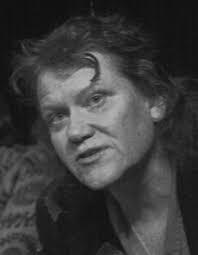
Photo by Playscripts.
Morgan: 1979.
David: Yeah, 1979, perfect.
Morgan: Yes, yeah. I thought I was there to say yes. I thought I was there to find the writers, the projects, you know, that we could say yes to.
David: Mhm.
Morgan: Or that we could, even if we didn't produce them, that we could say yes to yes you're a writer worth continuing being a writer, yes you have something to say.
David: So when you came in, were you replacing somebody? Was there already a literary..?
Morgan: No, no no no, I cam in basically as, you know, intern, you know, filing play reports. I was just there sort of, I had met Lynn Holt, sort of accidentally, who was the literary manager, and she needed help with the series Poets at the Public that she was starting, and also you know just in the literary office, so I kind of went in a couple days a week and started filing literary reports. She was there, Robert Blacker was there, Gail Marthyl Path was there, you know, and I didn't know what a dramaturg was.
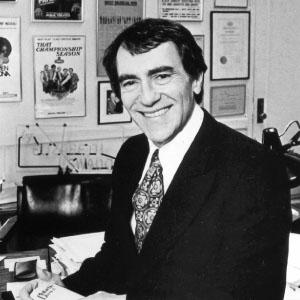
Photo by The Public Theater.
David: That's a powerhouse.
Morgan: Huh?
David: That's a powerhouse group you walked into.
Morgan: Oh my God of course. Incredible.
(David laughs)
Morgan: Also Bill Rosenfeld was there, as Gail's assistant, whose now a rather fabulous playwright. So yeah, it was a tremendous powerhouse all over the theater.
David: Why was it called the literary office? Where did that even come from, you know?
Morgan: I don't know that it was- I think it was called play development.
David: Uh huh, uh huh, okay.
Morgan: I think it was called play development, I don't think it was ever called the literary office. I mean I said to Kevin, you know he said "Well what do you think about literary management", and I said " Well I think there's two things wrong: Literary and Management".
David: (laughing): Well, exactly.
Morgan: You know, so you know, I think that's exactly the problem. So yeah, it was play development, and you know, that's also sort of a dubious term, but it was like, I always thought it was photography, you know. You had these vats that things were put in, so that they could develop. You know, you were soil, that things could be- a green house; there's soil that things could be planted in and you know, punned, you know, and given fertilizer, and sun and rain and whatever they needed to grow.
David: Yeah.
Morgan: Or -
David: And you still had to say no, I mean, when- it wasn't some sort of utopia, you still had to decide which things to invest in.
Morgan: Of course! Yes, of course, we had to say no. And actually, you know, there was a test of a play that you were given to see if weather you thought it was a good play or not, and if you thought it was a good play, you know-(laughing) you were, `you sort of said "yes, well a lot people think this a good play, but the public theater or Joe Pap, you know, does not think this is a good play.
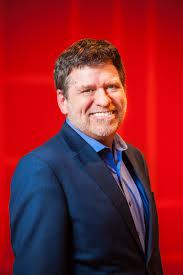
Photo by Mike Ritter.
..he had a script, in his hand, and he held it up, and he said " What is this?" and most of us sitting there, you know, twenty- one years old, went " that's a play!" and he threw it violently on the table and he said "NO, that's a script".
David: Wow, so you had to tune your own ear to, to Joe's sensibility.
Morgan: Yeah, yeah. It had to match.
David: Okay, I think that still goes on.
Morgan: Yeah, yeah I still think that goes on. I mean George Wolff I think had a great description of course. He says theaters are like restaurants, they use certain spices, they use certain ingredients, and you choose where you want to go the way you walk past a restaurant and you go "Mm, cumin, I like that" or you go " Mm cumin, no I don't like that",
David: Yeah.
Morgan: It's like what are the ingredients you cook with, it's like a chef, you know, what do you choose, what are the meals, and you have a signature.
David: How many plays where you guys wading through at that time?
Morgan: About two thousand.
David: Two thousand a year, yeah, which is more than most people are dealing with now.
Morgan: Yeah, well we had unsolicited plays, you know. We looked at unsolicited plays. And what I was doing was filing play reports cause we had a like a bevy of you know, twenty, twenty five readers, you know, that would come in and pick up their little stack of plays every week, and then would, you know, write up these reports on these forms, you know, which was about, like you know, what the play was about, what the strengths or weakness of the writer was, is this something we should politely pass on, is it a play that might not be right for us but the writer was really worth looking at, is it a play that wasn't quite finished but the play might be worth looking at, or was it something that absolutely we should seriously think about leaping into like production.
David: Mhm.
Morgan: And there were these levels, you know, that you sort of placed the play in.
David: What do you think- in the world we are experiencing the shift from " I went in to say yes" to, my job was to say yes, to my job is to say no. And that may be fasal, but it feels like that's real. What 's that shift about, in your experience? Or is even a shift?
Morgan: Well I think that shift is about, you know, how, what the literary office is really supposed to do. And Mike Daiset say, you know, talk about this brilliant plan, how theater failed America, where he describes the office, does it have windows, how far is it away from the artistic director, you know, do you have a pile of scripts that you can actually never get to, you know, and how he says that if you pack them in water than maybe one day a production will grow, and it NEVER does.
David: Mhmm.
Morgan: Hysterical- you know, that theaters don't, you know, come out of,- I remember Helen Merril, when I first went to work there, Patrick Harold used to tell me that Helen Merrill would say, you know, that sending scripts to literary offices was not the way to get a play produced.
David: Hm.
Morgan: Which you know, we both went "Oh my God, how could she say that", and then you know, little by little I went " oh yeah, actually she was pretty right about that". (laughing)
David: So, would she write about-
Morgan: And yet, -
David: Go ahead, go ahead.
Morgan: Yeah.
David: Go ahead, the literary, go ahead.
Morgan: No, because she said you get it to- if the artistic director doesn't read it, it doesn't matter. Or if a director that the theater, you know, trusts and wants to work there doesn't love it, it doesn't matter. Or if an actor, you know, who the theater wants doesn't love it, it doesn't matter.
David: And what she, was her experience of the Public that as well? You know, when you were inside it, you had a sense of what you were doing, did she have a different sense of what that office was doing?
Morgan: Helen? Helen Merril?
David: Yeah.
Morgan: Oh! No! I will tell you the Helen Merrill story. She sent plays in gray envelopes. And we would get them- we would get maybe one, every couple of weeks, you know. You had those big stack, literally you know five feet high of plays, it would be in for the week, and all these manilla envelopes, and then there would be this gray envelope, which was what she used, it was kind of brilliant. And we would look at the grey envelope in the stack and say " Oh my god, pull that out, it's from Helen, because she would only send things that she felt, you know, were absolutely right. She was almost like she was part of the literary office.
David: Yeah.
Morgan: She understood what the theaters mission is and whatever, and I remember once I heard about a play and a writer and I said' Helen, you haven't sent this,' and she went ' No, I haven't" , and I said " Well, what, you don't think its very good", and she said "No, it's very good," she said " It's just not for you" (laughing)
David: Uh huh.
Morgan: And I had to beg her to send me the script. And she was obviously right, it was not right, it was not something the public was going to do, but I said, you know, I had to convince her by saying " but, you know, whose this writer, and if its's not this play well you know is the writer someone we should know about, and I said " I talked to all of these people, you know, in other theaters, you know, I should, you know, I'd get around, you know, all over the place, and maybe I should know about this writer personally, so she ended up sending it to me. And she was absolutely right, it was not necessarily the play or even maybe the writer, you know, that was someone, you know, that the public theater would necessarily produce. But it was a good play
David: But that expects the question of, the writer was writing in Mediterranean, and you guys were focused on Tex-Mex at the time or whatever (laughing).
Morgan: Right, right, to use the metaphor. I love that restaurant metaphor, I think it’s kind of fantastic.
David: Yeah, it also takes it out of the personal. It's not that the play is bad or the playwright is bad-
Morgan: No!
David: It's not, it's not- the taste of-
Morgan: Yeah. And like you know, you know, like you know that ubiquitous " It's not right for us", and you go "Well sometimes I understand that, and other times I have no clue what that means. What does that mean "not right for you". Who are you, first of all.
David: Yeah, right.
Morgan: And what do you serve, or do you just serving whatever the restaurant critic in another city says he likes, so you are going to cook it, for your audience, even though that's not their cultural dish or whatever, because this other resturant critic in another city said "This is the meal"
David: mhmm, Mhmm, or even, you know, you're going to cook the same meal they are cooking down the street because you're local.
Morgan: Right
David: Paper seems to eat there often.
Morgan: Yes, exactly. And likes the food, and say " I don't like too much pepper, so we're not going to do so much pepper in dishes.
David: Mhhm
Morgan: Because the critics say "I don't like too much pepper".
David: So is this part of what you are experiencing on your side of the equation at this point, is that the theaters don't seem to know their cuisine, in a way.
Morgan: Well it's hard to tell because I never hear from anybody.
David: Okay.
Morgan: We send out things, we send out these newsletters- we run into people and they tell me that they really love the newsletters,
David: Mhmm.
Morgan: Or you know I'll send out something provocative and I'll get something back from maybe like a dozen people who respond at all, and they will say " Oh your'e so- oh yes, you really make us think", and maybe they'll ask for a play, but there's no dialogue. There's no discussion of what I've said.
David: Yeah.
Morgan: You know, or even if there is discussion we have these "ah, these fabulous discussions at TCG and at these convening, and you know, "Yeah, we wax poetic and philosophical and intellectual and we are all so smart and we are all so well meaning, but then what do we do? That's different.
The dramatrurg was often a writer for the theater, the dramaturg was there to provoke. The dramaturg was there to say the same way that you do in a play, you dramaturge the theater. You say 'Why are we doing this, what is the action".
David: Mhmm, Mhmm.
Morgan: I don't see any evidence of it. We are in machinery , like-
David: What would we do that-
Morgan: I don't know, question the machinery we are in, I mean are we all Charlie Chaplin going through the gears?
David: Mhmm.
Morgan: Question the purpose.
David: Right.
Morgan: If every theater, if you know, if we were, if Cromwell came in and was elected, and said 'Theater is now illegal"
David: Mhmm(chuckling)
Morgan: You know-There's this guy from- where is it- Seattle that I posted on my Facebook wall this morning cause I knew it would just get everybody riled up who just had these very sort of unthought out, you know, sort of thing. "Oh don't do, you know, stop doing Shakespeare, and let the audience, you know, have a bore night," and you know had some really kind of like flippant, you know, suggestions about how to keep theaters open.
David: Mh.
Morgan: But underneath the flippent, smoke blowing suggestions, there were real, you know, fires and things that people are thinking about, you know,. Grad school, you know, why do playwrights all have to go to grad school, you know, what does that mean.
David: Mhmm.
Morgan: What is the position of unions, you know. I mean there are actually some issues that even though he was kind of flippant about it, were really, really interesting issues in terms of our assumptions of how things run, you know. But my whole thing is like " Oh, this will keep theaters- keep their doors open, and my question is " Why shouldn't they keep their doors open?" What are they doing?
David: Hmmm.
Morgan: What is failure? Is failure theater closing? Or is a failure surviving and having no purpose other than a habit, a cultural habit. And why should theaters be open? Why do people go to the theaters? Why do you have a theater? What does it do? In the community.
David: And then so to go to the literary office world of that-
Morgan: Yeah.
David: Which you still want to poke at why that name, but then, if you're, working in a world, weather you are trying to say "yes" or "no", whatever your notion is about what you're doing, if there isn't a clear sense of why at the bottom of it, how can that office function, what is that office actually doing.
Morgan: Right. And it, I always say the literary office you know or the dramaturgical office, cause I actually like dramaturgical office because dramaturgy going back to the original German sense of the word. The dramatrurg was often a writer for the theater, the dramaturg was there to provoke. The dramaturg was there to say the same way that you do in a play, you dramaturge the theater. You say 'Why are we doing this, what is the action".
David: Right. That makes total sense to me from my experience here at Arena.
Morgan: Yeah!
David: That this office is actually about - it's about the institution and it's about the audience- you know, so much of what we are doing (unintelligible names), just knocking themselves out to do it,
Morgan: Yeah!
David: Is about the provocation of conversation between the audience, and even all the way into the rehearsal room now, between the audience and the art. And managing that conversation, and making it, you know, producing opportunities for that-
Morgan: Facilitating that conversation of " I can bring in an occupy word", facilitate that conversation.
David: Yes, absolutely.
Morgan: Facilitating that conversation to the point, just like a good dramaturg, just like a good therapist, you are no longer necessary and the relationship is direct.
David: The relationship is direct, and its also productive in the sense that, one of the things that we're finding is that we are training the audience in terms of its own capacity and its purpose in this dialogue.
Morgan: Yes!
David: As well as training the artists in terms of the why and how they actually relate directly to the audience, both through the work and through their conversation following and all the stuff that's online- this is- to me it's so thrilling what they are doing, what we're doing- you know I'm involved in it, but I'm on my way out. But the, but what we are doing there is so encompassing and so productive and energizing- and the whole question of how then do you maintain space in that effort for something called literary management? And so I guess the connection to what we are doing- to dramaturgy, especially dramaturging the institution and the purpose of the institution in its communities -I get that, that makes total sense.
Morgan: Yeah.
David: But we call it "literary management" and I can't make that leap.
Morgan: No.
David: I make some fake definition about words, you know? (laugh)
Morgan: It's called the dramaturgy team, you know, the dramaturgy and facilitation, the creative facilitation team, you know. Then you kind of go" yeah", you know, cause I actually do think, you know, in terms of dramaturgy and audience development, and yeah, that's absolutely code, it's tied in, you know, with its program notes or you know, or you know, like you go out and you fertilize the field, and you help the seeds, you know, grow in the greenhouse, and then you help transplant the, you know, little plants to the field, that has been fertilized so the plants can thrive.
David: I even get it as why and how we do it within new work, you know, and why and how we do it in each production, all of those things I get in terms of the role of dramaturgy. And you know I wrote about this earlier, and I think I confused everybody, or made no sense to anybody, but this- my sense is that everybody whose working in the organization has to in some way think of themselves dramaturgically. They have to think of themselves as a contributor to the dramaturgy of the entire enterprise.
Morgan: Yeah, marketing. Marketing? Marketing has to be dramaturgical, yes, yes, yes. The way (untellable) the rehearsal room is dramaturgical
David: Fundraising-
Morgan: Fundraising, absolutely. The way-
David: If you are raising money for brick and mortar, if you are just raising money for brick and mortar-
Morgan: Yeah, but what's the point?
David: And there is not attached to as story, you wind up with an empty building.
Morgan:Yeah. Yeah, yeah, yeah.
David: So all that I understand. And even the- the person at the stage door- Peggy- at Arena is completely connected to the artists working there. She knows them by name and she knows why they are in the building, you know? (laughing)
Morgan: Yeah.
David: And somebody dropped by- the UPS guy dropped by she could tell the story of Arena through the work that people were doing up in the rehearsal hall. And that seems to matter to me. I get that, that's a responsibility of the artistic development office, which is, you know, where the dramaturgy at Arena sits.
Morgan: Right.
David: So back to this question then of literary. So I- guess what I don't understand, and maybe you have some insight- why did we start to use that term "Literary Management" when what we meant was, you know, the stewards of this liturgical integrity of this institution, and the-
Morgan: Well, I don't know where literary- I mean the whole idea of theater being literature, I think it goes all the way to that in terms of, you know, like English departments don't think Theater is literature, you know?
David: Mhmm, right.
Morgan: You know, that whole thing that theaters and dramas should be accepted as literature, and that some of it is absolutely of course literature, but mainly when you get to the great poets, you know?
David: Mhmm.
Morgan: Who are dramatist, which you know, still- I love dramatists who are poets, I love them more than anything, you know. I love Marcus Gartly, because of that, you know. But I think the idea of drama as literature,- when I first came to New York, in the mid late 70s- I remember going to like a little panel thing, I forget who sponsored it, with this guy who was a producer, a big producer came in, and came in and you know, he had a script, in his hand, and he held it up, and he said " What is this?" and most of us sitting there, you know, twenty- one years old, went " that's a play!" and he threw it violently on the table and he said "NO, that's a script".
David: Mhmm.
Morgan: He said that's no more a play than a blueprint would be a house.
David: Wow. Wow.
Morgan: That was David Merrick, so you have to consider the source. But-
David: I know but Jesus, that's a big thing.
Morgan: But that had a huge impact on me.
David: Yeah, yeah. Well clearly with everything you are doing now, I mean, we can- we can, you know, slide into that part of it here because you're the script, the script that you are starting from are barely even blueprints for the house. You are looking now at basically civic policy when you look at a script- the stuff you are doing is city planning. (laughing)
Morgan: Yeah, no- it's like, you know my whole obsession is the Agora, you know,- which is completely- which is why the theater and Occupy Wall Street to me are completely entwined.
David: Mhm.That's very interesting work.
Morgan: The theater comes into the agora of Occupy Wall Street and makes it an agora, you know. It's not like tents, you know, like when Bloomburg said, you know, you can occupy with the power of your augment and your ideas, it's like yes that's absolutely right, and that's what we're going to do. And now when the cops try to stop us from doing something that's within our first amendment rights I say to them, I said " We are doing what the mayor has told us to do. He's your boss, isn't he? Are you going to say that we should not do what your boss tells us to do?
David: (chuckles)
Morgan: It tends to stop them!
(both laugh)
David: That's so great.
Morgan: As a whole idea-
David: You had a long-
Morgan: What?
David: You had a whole conversation recently with Kevin Becerra, right about all the work you are doing-
Morgan: Yeah yeah yeah, yeah-
David: That's great.
Morgan: Well we talked about some of these same things, yeah, yeah.
David: Well people are going to have to read that when it's available. All right, so- I'm trying to get it together- you think it goes back to the literature- when you were talking earlier I was remembering that I was on some task force with a major literary prize in California, I'm not going to bother to say the name, but this is like probably twelve years ago, and we met several times to discuss whether they could start offering a prize, it's a very important prize in the world of literature, weather they could start offering a prize in drama. And they wound up deciding essentially the same thing, that-
Morgan: Right.
David: That it wasn't literature.
Morgan: Right.
David: It was a blueprint for a production.
Morgan: Right. Well I went through this dance with the Whiting foundation, you know. And I was brought on by Kara, you know, who was it- when Gerald- oh god who was there, he's since passed away.. but I was brought on because there was a feeling that, you know, the committee was so opposed to drama being part of it, you know, that it needed someone who could really argue, you know, on behalf, you know, of drama being literature; dramatic literature being, you know, that there were writers of dramatic literature that were worthy of being considered.
David: O' Neil is still the only American playwright to win the Nobel Prize for literature.
Morgan: For literature.
David. Mhmm.
Morgan: So the Irish have won it serval times, interestingly.
David: Right, exactly. It's funny how all the Irish- it's all Irish.
Morgan: Yeah Well because of the nature of the literariness- of yeah, yeah- they have the poetry.
David: Yeah.
Morgan: The poetry, the poetry is absolutely at the core of that culture.
David: Interestingly.
Morgan:The poetry-
David: Well let me try this out on you. So, perhaps that- is it possible the nature of the writing has changed so, that there is a profound change to the nature of writing itself, that moves it away from that sort of literary world, and more to the blue print specific policy, and even entertainment, or like blue prints for big ideas to be produced.
Morgan: Yeah. And I don't think that the two are mutually exclusive.
David: No.
Morgan: Taylor Mac, you know, the second act of Lily's Revenge, is completely in literature, its written that way. It's poetry.
David: So, what do you have us to do- lets' say that you got to design- we being you in as the architect of the literary office of tomorrow- like literally tomorrow, not some distant future, but starting tomorrow, or the day you hand in your plans, we are all gonna to turn- make the switch to the literary office being right on point for what's needed now. What kind of things would be in there?
Morgan: Oh wow.
David; You get to decide Morgan. You are going to invent the new literary office for all of us, right here, right now.
Morgan: Oh my god.
(David laughing)
Morgan: That's a really interesting question because, you know, the test is you can always say what's wrong, but how do you, you know, come up with a solution for what's right.
David: Yeah. what's necessary now. What are the, what are the highest values right now, that you would prioritize.
Morgan: It would be hard to find somebody at their desks, first of all.
David: Mhhm.
Morgan: I think at Manhattan Theater Club when Elizabeth Bennet was working there. And she couldn't go to read, she couldn't go anywhere, she always had to be at her desk. And my literary office, it would be really had to find people at their desk.
David: Mhm.
Morgan: Because they would be in rehearsal, they would be out in the community, they would be in cafes, or somewhere else talking to the writer; they, you know, they really would not be at their desks much.
David: Mhm. And with that time, what would they be trying to accomplish?
Morgan: They would be taking the temperature of the audiences and people in the community that were not yet audiences, they would be having, you know, conversations, you know, with writers, they would be on panels talking to groups of you know, young people, or you communities, or groups of writers, or classes.
David: Mhhm. Probably groups of theater staff as well it sounds like.
Morgan: Theater staff?
David: They would be talking to other people-
Morgan: Yeah, yeah, yeah!
David: To the other people to see what in the world-
Morgan: Yeah! They would be in the marking office, you know, yes- absolutely, absolutely. They would be roaming. They would be ambassadors. They would not be at their desk, unless they were, you know, answering emails, but they could probably answer emails anywhere.
David: And how would plays- what would happen to submissions? What would that look like? What do you think- in the future- what do you think-
Morgan: Well the thing is that, you know, I remember Joe Chakin walking into a group of like young artists, eager artists, and he looked around- this was after he had his stroke and he was, you know, he was still- he was still really struggling with the language, and he walked in and he went, and he sighed, and he went " too many writers ,too many directors, too many actors," (laughing), and everyone in the room kind of went" Ohh".
David: (laughing)
Morgan: And it's like " Who do you need that you don't have already?'
David: Mhmm.
Morgan: How many people are out there-
David: So that's partly what- this person, and they are still called literary manager, and maybe during the convening we can come up with a question as to why that's the title, and what's about that title, but part of what you're hinting at as this person is also working to spot the gaps in the narrative quilt.
Morgan: Yeah.
David; Like where is- we don't have that voice here, we don't have that spice here- who is it? Who is it?
Morgan: And then you look for it, you look for it specially. If you have the person who is going to write your three person comedy, and of course nobody does, and everybody is looking for that person- that to me, even though I think "Oh, do you have a three actor or less comedy", is like the most reductive thing you can hear. At least it's something- I can do something with that. I can say to Laura Eason " Can you write something like that?" She writes Sex With Strangers. It's terrific. She gets poached by another agency because she's written a play that I suggest that she write to fill a gap.
David:Yeah.
Morgan: Even that specifically. I am looking for this! Thank Fucking God! Not " OhI'm looking for - we are just looking for a good play." Let me come over right now and blow you away. Really. Really. That's what your looking for. What the fuck does that mean?
(David laughs)
Morgan: Sorry. Excuse my French.
David: I love your French. We spell that F-U-C-Q-U-E around here.
Morgan: Thank you." Fuque you, fuque yet"
(David laughs)
Morgan:What the "fuque" does that mean? But really! Like thank God, just say, be honest and say " Well we got a lot of big casts, and it's sort of a grime season, so we really need something, you know, we `would like to do something new, but do you have something less than three actors, one set, and can it be funny but still mean something.
David: Yeah.
Morgan: That at least is a gap that is described. I kind of go " All Right, really?" and practically every other theater will describe that gap. And then they will say " But it needs to be funny, and I say Does it need to be funny, or does it need to be uplifting" and they go" Oh, yeah, it could be uplifting! It just can't be depressing and dark and say the world is shit and there's no hope, because we are going to sell some season subscriptions after people leave,
(David Chuckles)
Morgan: And it's easier to sell a season subscription to someone who is kind of feeling optimistic.
David: Hmm. And let me ask you-
Morgan: And that's fine! That's why the Greeks has the freaking- everyone says trilogy, even Peter Value goes " Well, there were three plays". No there weren't, there were four plays, you idiot British snob. And one of them was a comedy, was a satyr play, that was thematically linked, but you know what, because the Greeks knew that after tragedy, you would have to have you know like a little, dessert.
David: Hmm. (cuckling). And that was okay.
Morgan: And that was okay!
David: Yeah, okay. So when-
Morgan:I think it's fine that theaters go "We need, you know, a comedy, or something uplifting or what ever," cause at least it describes a gap. At least I know what the gap is.
David: Yeah. When you were doing this in 79- you were doing it for some years there- when you were doing it- where there- I've been saying this, and you would be a good person to challenge me on it- I've been saying that we are in this moment of abundance, in the sense that are more people who are open to new work, there are more places that are training, developing, curating new voices, there are more resources-
Morgan: Yeah.
David: When you were getting two thousand scripts because there weren't really that many places were able to send their plays to, correct?
Morgan: Yeah, yeah, yeah, yeah. I mean, yeah. I mean the new play movement was just starting.
David: Yeah. So in some ways its logical then that the role has shifted from one of sitting in an office, receiving things and reading them, to "Okay, now there are many places, let's go out into the world, connect our institutional narrative, our artistic narrative, to the world we are in through the people who are writing in the gaps, that we have.
Morgan: Yeah. And all the people who get them. If like, you know, why is'nt LNDA doing script share anymore? I don't understand that. Why aren't we all talking about-"We can't do this, but you guys should look at it, really do it". I mean that used to happen more.
David: Yeah.
Morgan: Oh are we competitive? It's like "Oh no, we can' tell you about this story". Isn't like my story with Joe Pap- you know,
David: Yes! Can you tell that story and then I'll let you off the phone because-
Morgan: Okay.
David: Tell this story, because I tell this story-
Morgan: Mame actually reminded me who it was. And I couldn’t remember for years, and then Mame said once when I was talking to her "Oh I know that play because you sent it to me". So, I was really happy. So basically -and I'll tell you the punch line after. This was one of my many funny moments with Joe. So he had passed on a script that I was really, really, really hoping that would- that we would do. And he said " Nah, no, I don't want to do it- it was to.. you know.. it didn't fill the gap for him at that point. And that was fine. You know I love the play, I love the writer, I thought it was an interesting thing for the writer, I thought there were all kinds of reasons audiences would like it, but you know it didn't fill the gap and I said that's fine. So I sent it- I mentioned it to a couple of people, including Mame Hunt at LATC, and LATC ended up doing the play. But anyway- so Joe says to me- he hears that I've sent this to Mame, you know to Mame, and he hauls me into his office and he said " Oh, I've heard that you've sent this play, you know, to another theater". And I said " Yeah, why, have you changed your mind? I’m sure that the writer, you know, would like to be here, you know, first choice." And Joe said "No, I still don't want to do it" and I basically said " Well, what do you care?"
(both laughing)
Morgan: And he said prophetic words, he said "Well, your acting like their agent! You know, you work, you know, for the Public Theater." And I said " Mr. Pap, you know, I actually like to think of it more that I work at the Public, theater, but that I work for the American Theater at large, and I mean, don't you really, don't you sort of feel that sir too, because it seems that we do things here, but they really are meant for the theater at large?" And he looked at me and he kind of, you know, "Get out my office", you know? So, but you know- Hello? It was like. You know.
David: He didn't fire you.
Morgan: Well the host- well yeah, yeah. I was walking out of the office saying to people who were scurrying away from their ears against the door going "I'm not fired". And you know if he had fired me I would be happy to go, because if he had fired me over that that would have meant I wouldn't have wanted to work there.
David: Well yeah. You would have been wrong. You would have been wrong, you were actually working for the Public, and he wouldn't have been the person that you thought he was.
Morgan: Right.
David: Because actually he would- he didn't fire you because you were right.
Morgan: That's right. That's exactly right. And he knew I was right, and he wanted for me to be right because that's what he wanted to do. And that's why he was a fucking great man.
David: That's right. F-U-C-Q-U-I-N-G
Morgan: Very few like him.
David(chuckling) Yeah I know. Every day- you would just wake up and breathe and think you know" This is- this is our responsibility now"
Morgan: Right.
David: I always feel that way- you know I was just on the house staff. I sat in my little chair, in the lobby, or I ushered, or I house managed, and I ran the line in the park, and all those things, and you know it's interesting because it comes right back to the beginning- I did that- He knew my name- there was no reason for him to know my name- and I knew the entire story of the organization. I could tell everybody where I worked, what we did, and what were- how we were working on it. And I wasn't invited in any of those meetings, I wasn't anybody’s priority, it was just everybody knew it. And if I talked to Shitayah Baker she could tell me the whole story, and she was the head of the house manger, you know?
Morgan: Oh Shityah. Oh my God, Shityah. And you know what it was- because you were an extension of his ego, in a very creative way.
David: Yeah.
Morgan: Like when I was starting to go out- I would go see shows that he was invited to. "Oh, we'll send Morgan, she likes to go to the theater( laughing) " Let's go to the theater, send me!" And at one moment I sort of said " Well can I have a card, you know, people ask me for a card, can I have a card, I can write my name on it or something you know, so then the number" And he looked at me and he said " No, you can't have a card, because people already think you're me, and if you- if you have a card they'll believe it"
(Both laughing)
Morgan: Which is just the funniest thing! Both like- sort of like, you know like, slapping me but also embracing me at the same time.
David: Mhm.
Morgan: Like Hell, people think you're me. And he used to say, okay, at the begging he would say "Alright. Well you’re going and you’re my representative, and you are me when you go out there, so I want to hear- I don't want to hear that I did anything stupid.
David: Mhmm. Mhmm. Yep.
Morgan: And that generosity of ego, that embrace of ego, that he knew your name because you were part of him.
David: Yes. But also he was part of the larger equation.
Morgan: And he was part of that larger thing, which that other story, you know, where I think I told you, where he looked around and said you know like "Oh you are all loyal, and kind of went around the table, you know, at the sushi restaurant saying how hundred percent loyal everybody was, and I'm sitting there going " Oh my God, shoot me now" And he gets to me, and there's a pause you know, and he says " Oh, Lisa, you're like eighty percent loyal. you know, " Oh, that's high" , you know, and he says "Well it's okay, it's okay, I like it, when it gets below seventy five percent I'm going to start to worry" And I said " Well I think you should start to worry now Mr. Papp" And he goes" What do you mean" And I said "Well I don't serve you" And he goes " What" and I said" I serve what you serve" and he goes " I don't serve anything" , and I say " Oh yes you do, and that's what makes you great. And when you cease to serve it, if ever you cease to serve it, you will cease to be great."
David: Period, end of story. That is a perfect place to end.
Morgan: Period, end of story.
David: (laughing): Well Morgan, thank you very much.
Morgan: Good bye.
David: No that's perfect, let's just stop right there. That is an excellent place to end.
Morgan: Okay.
David: And people will read, read your Occupy stuff in your interview with Kevin,and then we are going to come back to this, because you and I could talk for days.
Morgan: Well maybe I didn't talk about Occupy, I sort of talked about everything, I don't know, I talked the poor guys ear off. Anyway, good bye.
David: Love you, bye.
Morgan: Bye, love you.
End of phone call.

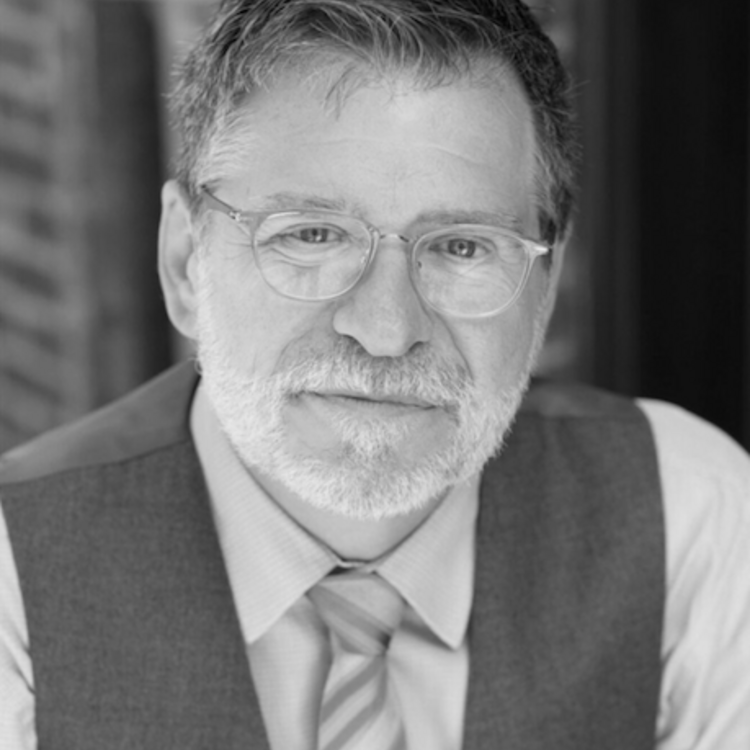
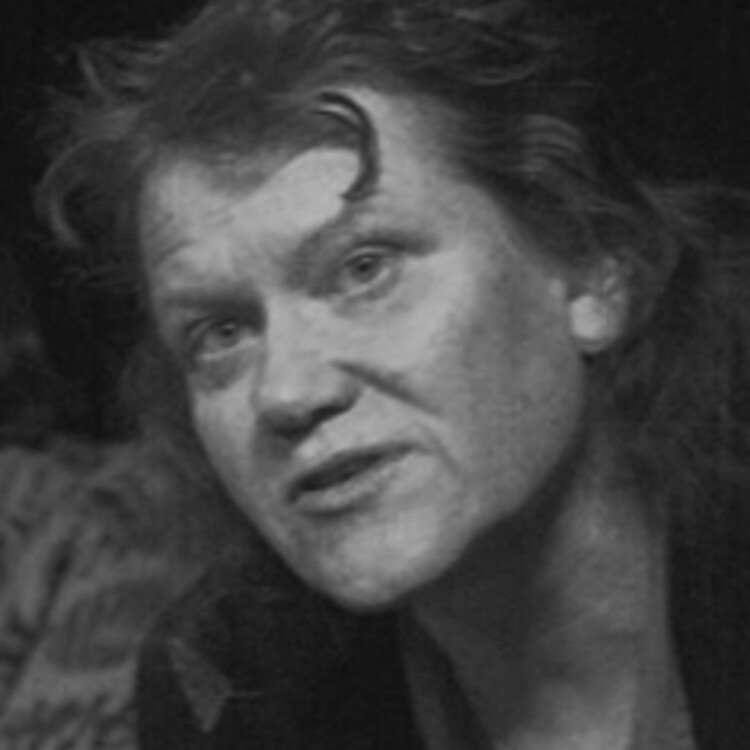
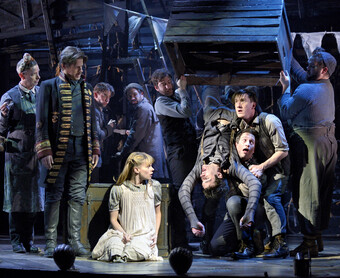


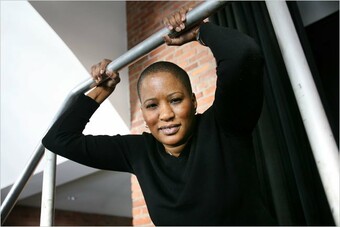


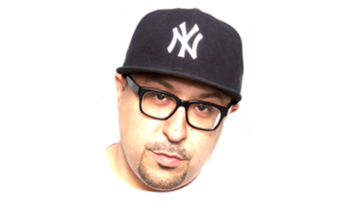

Comments
The article is just the start of the conversation—we want to know what you think about this subject, too! HowlRound is a space for knowledge-sharing, and we welcome spirited, thoughtful, and on-topic dialogue. Find our full comments policy here
David/Morgan - great call! fun to listen and inspiring in terms of conversations that should take place!
Thanks again!
Yes..excuse moi...tho I am more chagrined that I say you know two hundred times...lol. thank you David once again for letting me run wild around the paddock...xx